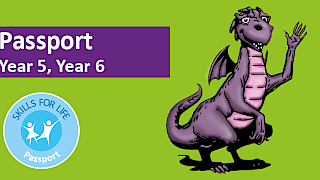Summaries of Evaluation Studies
Since 2010, the Skills for Life programmes have been regularly and rigorously evaluated by independent researchers and universities through comparative and randomized controlled studies designed to measure the impact of the program on children’s behaviour and social and emotional skills. This research has been conducted across 6 different countries including the United Kingdom, Canada, Ireland, Norway, Czech Republic and The Netherlands. Our evidence base means we have been recognised by many organisations, included on databases and cited in many reports.
United Kingdom, 2018
Type of trial: Randomised controlled trial, validated scales.
When conducted: 2016-17
By: Queen’s University Belfast, Funded by the Education Endowment Foundation
Number of children: 3904
Major findings:
- Improvement in self-regulated learning (teacher report)
- No improvements in emotional self-regulation (child report). However up to 1/3 of children were unable to complete the measure which hadn’t been validated for children this age. Low security of finding
- Very positive process evaluation from teachers
Czech Republic, 2016
Type of trial: Randomised control trial, own questionnaire (not validated)
When conducted: 2015-16
By: Consortium of Prague academics
Number of children: 807
Major findings:
Increase in:
- self-regulation
- cooperation with peers
- particular benefits for children with SEND
Published article: Not yet available
Netherlands, 2016
Type of trial: Cluster randomised control trial, validated scales
When conducted: 2012-14
By: The Trimbos Institute
Number of children: 1,177
Major findings:
Improvement in:
- emotion recognition
- adaptive coping skills
- motivation
Reduction in:
- hyperactivity
- aggressive behaviour
No significant findings from teacher reports
Published article: Not yet available
Read a summary of the report (in English)
Norway, 2012
Type of trial: Randomised control trial, validated scales
When conducted: 2007-08
By: Centre for Child and Adolescent Mental Health, Eastern and Southern Norway
Number of children: 1,483
Major findings:
Improvements in:
- Coping skills
- Classroom climate
- Academic skills
Reduction in:
- Bullying
- Impact of mental health problems
Published articles:
Solveig Holen, Trine Waaktaar, Arne Lervåg & Mette Ystgaard. The effectiveness of a universal school-based programme on coping and mental health: a randomised, controlled study of Zippy’s Friends. Educational Psychology: epub ahead of print. DOI:10.1080/01443410.2012.686152
Solveig Holen, Trine Waaktaar, Arne Lervåg & Mette Ystgaard. Implementing a Universal Stress Management Program for Young School Children: Are there Classroom Climate or Academic Effects? Scandinavian Journal of Educational Research. epub ahead of print. DOI:10.1080/00313831.2012.656320
Ireland, 2010
Type of trial: Randomised control trial, validated scales
When conducted: 2008-09
By: Health Promotion Research Centre, National University of Ireland Galway
Number of children: 730
Major findings:
Improvements in:
- Emotional literacy
- Coping skills
- Classroom relationships
Reduction in:
- Hyperactivity
Published articles:
Clarke, A. M., Bunting, B. & Barry, M. M. (2014). Evaluating the implementation of a school-based emotional well-being programme: a cluster randomized controlled trial of Zippy’s Friends for children in disadvantaged primary schools. Health Education Research, 29(5), 786-798. doi: 10.1093/her/cyu047

